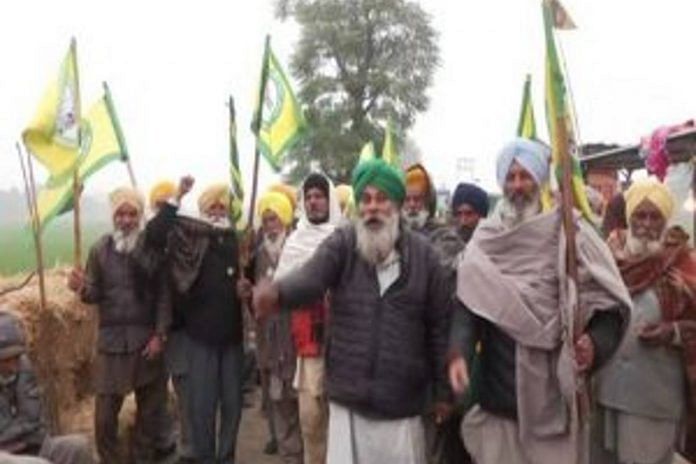Chandigarh: The Punjab government Tuesday maintained silence in the Punjab and Haryana High Court on written orders backing chief minister Bhagwant Mann’s 17 January announcement ordering the closure of the Malbros liquor factory in the state’s Zira tehsil.
During the resumed hearing of the case, the counsel for the factory, advocate Puneet Bali, sought from the AAP-led Punjab government written orders on the closure, but no reply was given by state advocate general Vinod Ghai.
Talking to ThePrint Tuesday, Bali said: “I informed the court that the chief minister had announced (the closure) through a video message and also tweeted his decision (to close the factory) but there are still no written orders. When I raised the issue, the advocate general kept quiet.”
Following a six-month public protest outside the factory over allegations that the plant was causing soil, water and air pollution in nearby areas, Mann had announced in January that the factory would be shut down with immediate effect.
Hundreds of protesters outside the factory, under the aegis of the Zira Sanjha Morcha, are refusing to end their agitation until they see the written orders on closure.
The advocate general instead told the high court Tuesday that on 3 February, the Punjab Pollution Control Board had withdrawn its consent given to the factory to operate.
Withdrawal of consent was on the ground that the factory had not adequately complied with the conditions laid down by the Water (Prevention and Control of Pollution) Act, 1974.
The board’s letter to the factory — which has been accessed by ThePrint — states that the unit was last given consent to operate in November 2021, which was valid till 31 December, 2022.
The factory had then sought fresh consent to continue operations but was denied, the letter adds.
According to the letter, the management of the factory had not submitted “substantial material to show” that they were complying with the conditions laid down in the consent letter given earlier to the factory to operate.
Listing the deficiencies, the Punjab Pollution Control Board’s letter states that the factory has not shown that it has “permission to utilise 1,000 kilo litres per day of canal water”, it has also not given details of the “operation of the effluent treatment plant”, nor has the factory given any details of the “utilisation of 2.5 per cent of the total project cost for enterprise social commitment”.
The letter further states that the factory has not given any record of the “occupational health surveillance of the workers” or about the development of a green belt.
The ‘water balance details’ given by the factory about the utilisation of the water in its various processes are also “not in order”, the letter adds.
Also read: Powered by farmer unions, stir against liquor factory in Zira ‘isn’t about just 1 village anymore’
Fresh plea for compensation
Residents of Mansurwal village, where the factory is situated in Zira, had started a permanent sit-in protest outside the gates of the factory in July last year — forcing the plant to shut.
The unit is owned by Deep Malhotra, a former Akali MLA considered to be close to the Delhi leadership of the AAP. Malhotra subsequently moved the Punjab and Haryana HC to get the protesters removed and the factory restarted.
Following HC’s orders, the district administration in December 2022 tried to forcibly remove the protesters from outside the factory’s main gate. This led to clashes between the police and the villagers and, over a course of three days, the crowds swelled from hundreds to thousands, with various factions of the Bhartiya Kisan Union lending support and resources to the Zira Sanjha Morcha.
On 22 December, the Punjab government constituted four different panels of experts to look into the allegations of pollution being caused by the factory. Of the panels, one was tasked with assessing the possible damage being caused to human health (air pollution), one to assess the possible damage to cattle, one to assess damage to crops (soil pollution) and one to assess water pollution. Some of the protesters were co-opted as members of the committees.
On Tuesday, the advocate general informed the HC that while some of the panels’ reports on pollution had been received by the Punjab government, a few are still awaited.
The high court had earlier also ordered the state to deposit a total of Rs 20 crore in its registry as compensation to the liquor baron for financial losses incurred by him due to the closure of the factory.
Advocate Bali told the court Tuesday that he had moved another application for deposit of another Rs 25 crore as compensation by the state government. He also sought that the factory’s owner be permitted to enter the premises.
Malhotra’s son Gautam was last month arrested by the Enforcement Directorate in the Delhi excise policy case.
(Edited by Nida Fatima Siddiqui)
Also read: Why protesters have gheraoed Punjab liquor factory for 5 months — ‘toxic ash’



